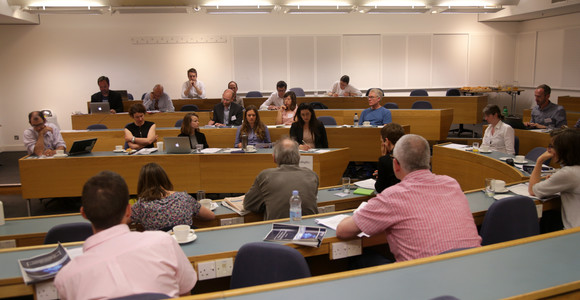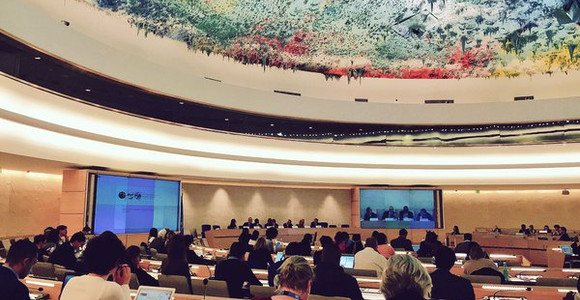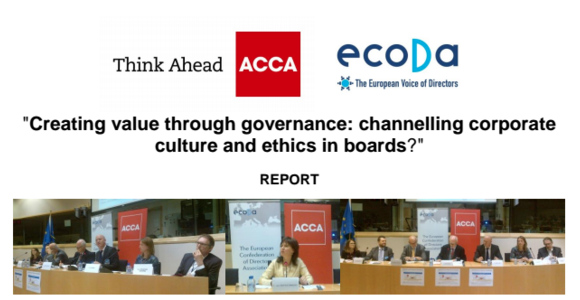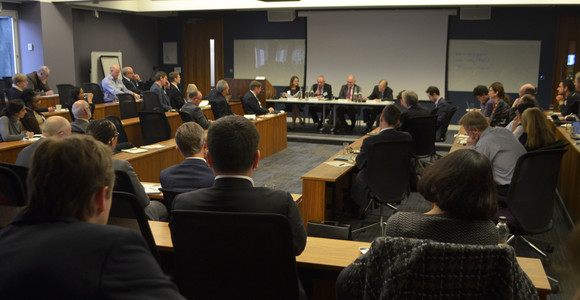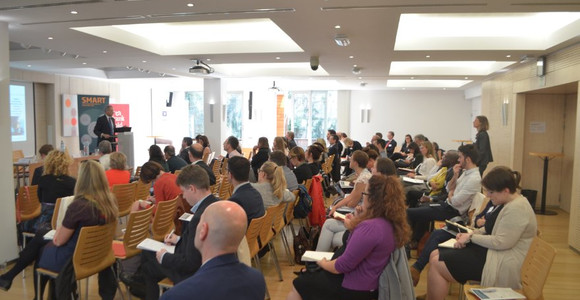When: September 19, 2017
Where: Norway House. Rue Archimède 17, 1000 Brussels
Registration: The event is free of charge but registration is required and places are limited. https://nettskjema.uio.no/answer/85216.html
The conference will be divided into an open morning session with academic presentations and an afternoon session with a roundtable of selected participants from academia, business, finance and policy-making. Together, this will permit an in-depth discussion of the implications of academic research, best practice and the potential for policy improvement.
Speakers morning sessions:
- Stuart Cooper, University of Bristol (Keynote)
- Katarzyna Chalaczkiewicz-Ladna, University of Glasgow
- Koen van Bommel, VU Amsterdam
- Georgina Tsagas, University of Bristol
- Jukka Mähönen, University of Oslo
- Beate Sjåfjell, University of Oslo
- Eli Rudshagen, University of Oslo
- Amanda Sonnerfeldt, Lund University
Speakers afternoon sessions:
- Pavan Sukhdev, Founder-CEO of GIST and former Head of UNEP’s Green Economy Initiative (Keynote)
- Richard Howitt, CEO of the International Integrated Reporting Council (Keynote)
- Zsofia Kerecsen, Policy Officer, DG Justice, European Commission
- Heidi Hautala, MEP, Greens/EFA
- Antoine Begasse, Policy Officer, DG FISMA, European Commission
- Jo Iwasaki, Head of Corporate Governance at ACCA
- Martin Rich, Co-Founder and Executive Director of Future-Fit Business
- Ladislas Smia, Co-head of Responsible Investment Research, MIROVA - Responsible Investing
- Cora Olsen, Global Lead TBL Reporting at NovoNordisk
- Niny Borges, Head of Legal, New Energy Solutions and Chief Counsel Sustainability Statoil
- Lise Bergan, Corporate Affairs Director at Cermaq
- Jennifer Law, Vice President at BlackRock - Investment Stewardship
- Eleni Choidas, European Policy Officer at ShareAction
- Harald Francke Lund, Senior Advisor at CICERO - Center for International Climate Research
The draft programme and further background information is available here.
The conference will examine policy coherence between the Directive, the Capital Markets Union plan, the EU’s commitments under the Paris Agreement and the Circular Economy Package, in light of the broader societal goal of achieving sustainability within the limits of the planet. It will also discuss how reporting initiatives can most effectively facilitate sustainable business.
Objectives:
Policy coherence: The success of the NFR Directive depends on two factors: (a) how well it is aligned with the full spectrum of public economic, social and environmental policies, and (b) how well it is internalised in corporate governance. The conference will address the most significant challenges in these two areas and suggest ways for resolving them.
The development of reporting theory: The lack of comparability and consistency of ESG reporting standards complicates integration of non-financial elements in the accounting and reporting framework, as well as in business’ and investor’s practice. As a result, global principles for financial reporting, including US GAAP and IFRS, still consider ESG information as an add-on to financial accounting. The conference will identify how theory development in the area of reporting can be improved to overcome this problem.
Best practice identification: The conference will seek to identify best practice with regard to both legislative developments and practice. With respect to the latter, the conference will focus on reporting and the role of the board in internalising the economic, social and environmental issues of the business in corporate governance.
The Role of Non-Financial Reporting
As the world faces shrinking supplies of resources and severe ecological consequences, it is becoming increasingly clear that economic activity needs to respect planetary boundaries. A growing interest in the long-term possibilities and risks of corporate strategy by investors and boards is supported by a public that increasingly expects businesses to contribute to solving diverse societal needs and problems. Moreover, there are indications that an integrated view not only helps companies build trust with its shareholders and other stakeholders but also leads to economic success. Corporations with good environmental, social and governance (ESG) performance and reporting generally also perform better than other corporations on the stock market and enjoy lower cost of capital.
However, reporting and accounting on non-financial matters is often disconnected from what boards consider as an integral and vital part of directing the company. On a macro level, this undermines the possibility of reporting that will be ‘vital to managing change towards a sustainable global economy’ (preamble of the EU’s Non-Financial Reporting Directive).
High-quality ESG information is also important for enabling responsible investment decisions. This requires an accounting framework that facilitates the integration of information on systemic and long-term risks as well as intangible assets and non-financial capitals. The <IR> Framework developed by the International Integrated Reporting Council (IIRC) suggests a pathway to such integration, whereas ESG reporting models, such the G4 Sustainability Reporting Guidelines provided by the Global Reporting Initiative (GRI) provide detailed metrics.
Currently, non-financial reporting in the EU has been integrated into accounting law by the Directive 2014/95/EU. Accordingly, large listed and financial corporations are expected to report on their business model, policies, risks, outcomes, and relevant KPIs for environmental, social, human rights and anti-corruption matters. The Directive, however, does not clarify what specific information should be disclosed, how such information should be integrated with financial information, and if and how the companies should account for non-financial capitals.
For further information on the Directive, see the briefing available here.
Visit the website of the event here


